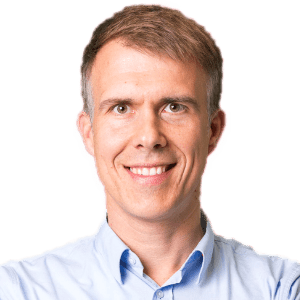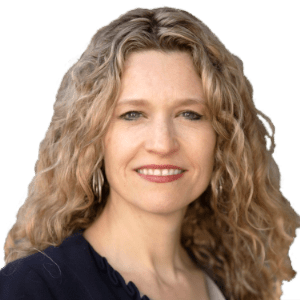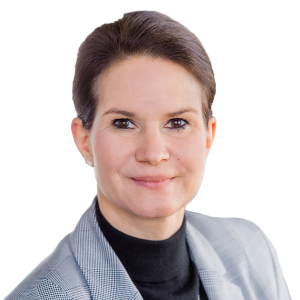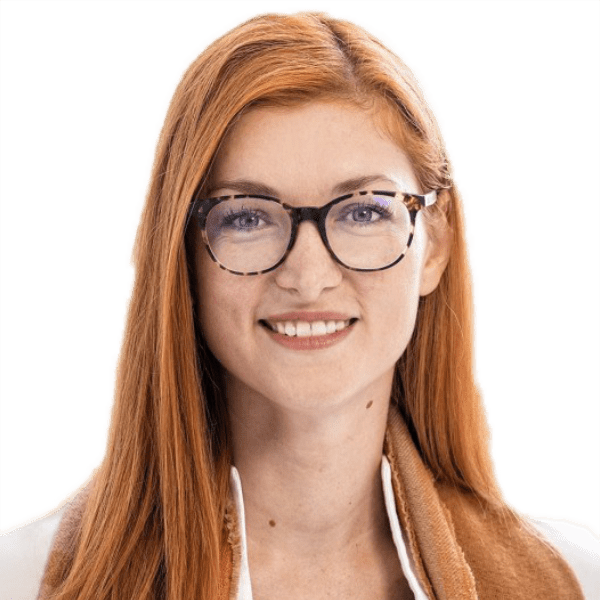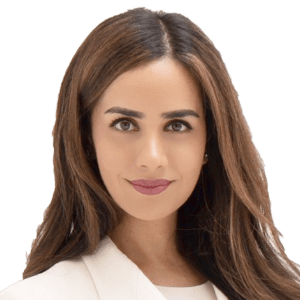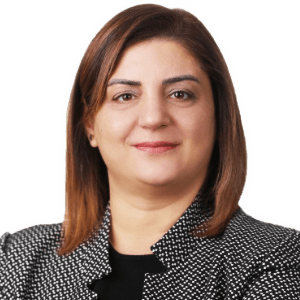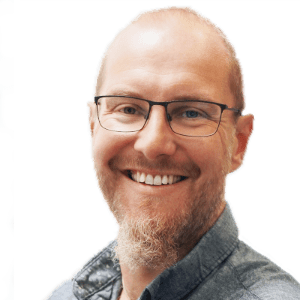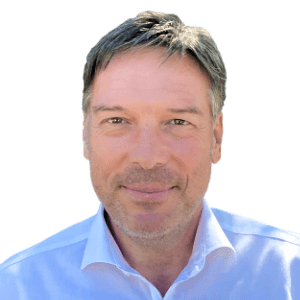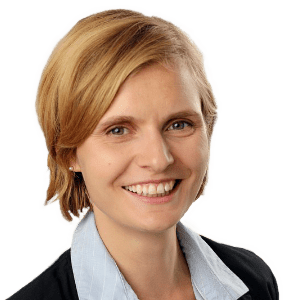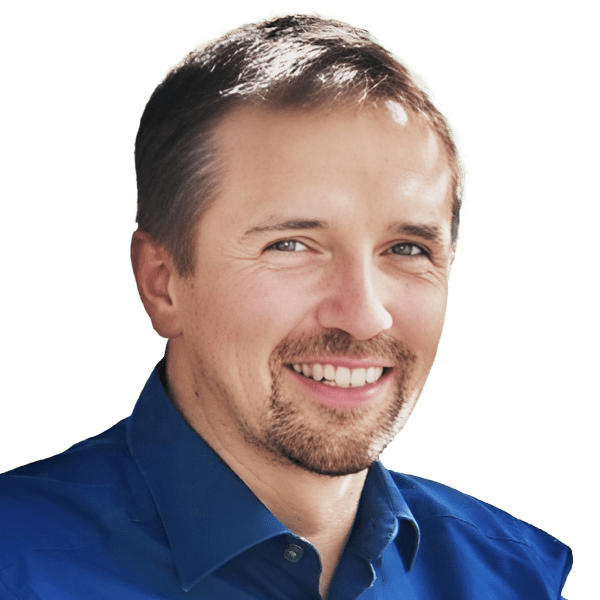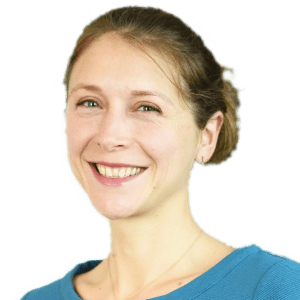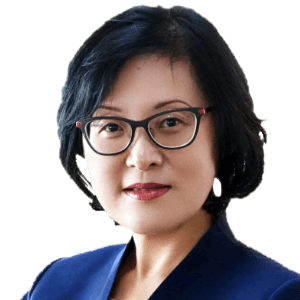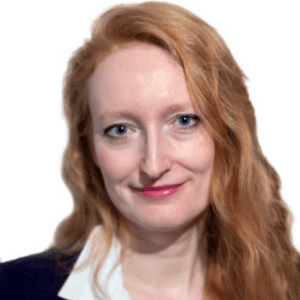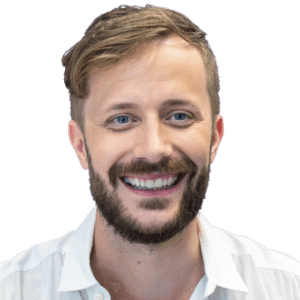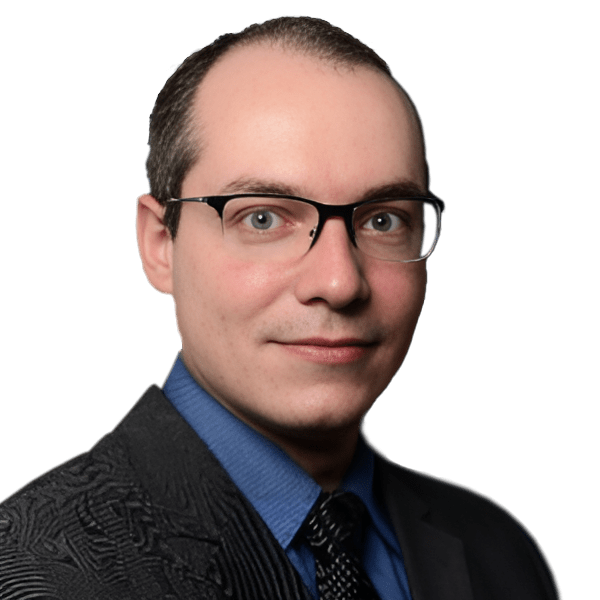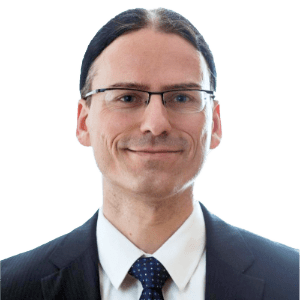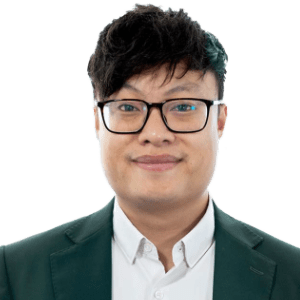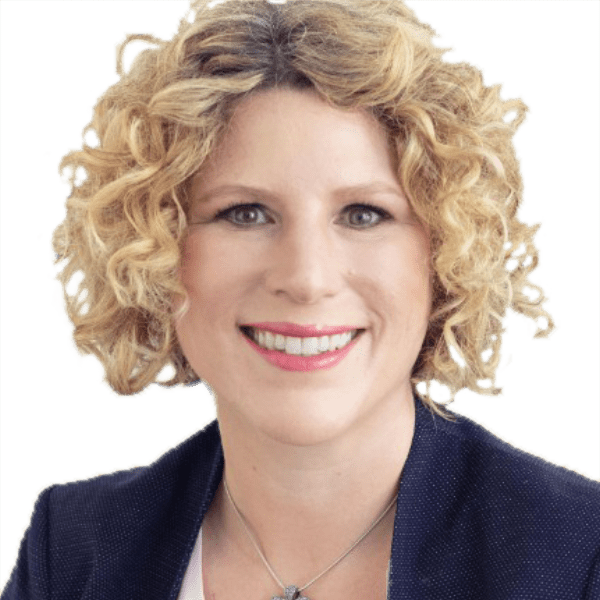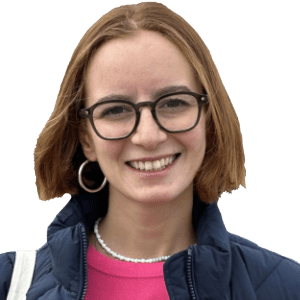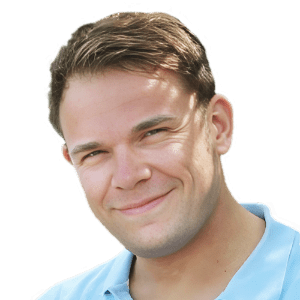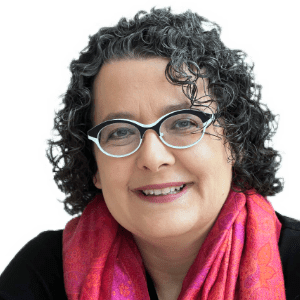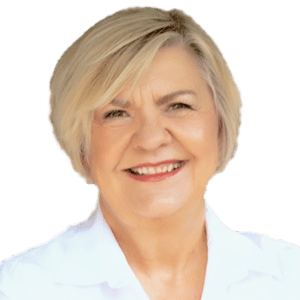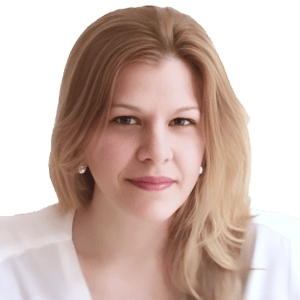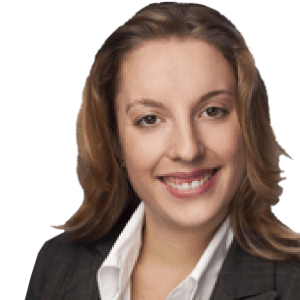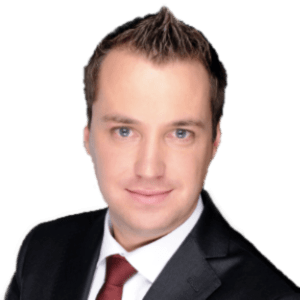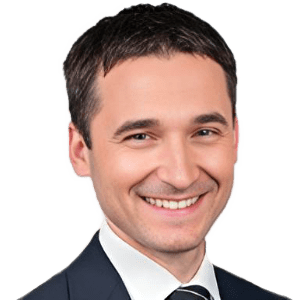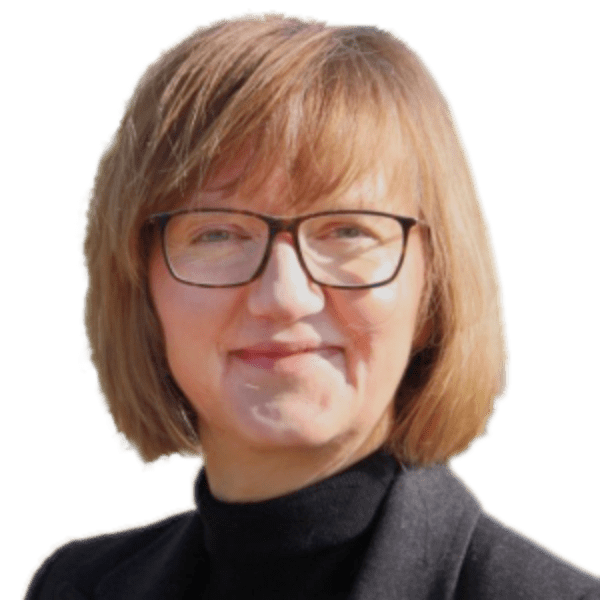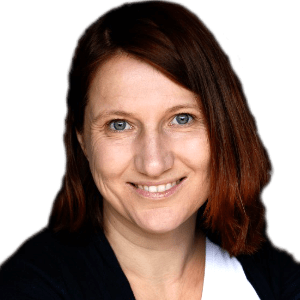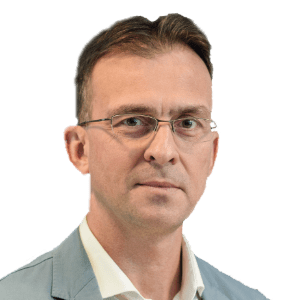Networking-Dinner | July 3, 2024
Come together in a relaxed atmosphere!
- July 3, 2024
- 06.00 pm - 10.00 pm
- NEMETSCHEK-HAUS
Conference Day | July 4, 2024
- July 4, 2024
- 08.00 am - 06.00 pm
- NEMETSCHEK-HAUS
Check-in, welcome & networking with fresh coffee
- 08.00 - 8.45 am
- FOYER & SHOWROOM
Welcome Keynote – Your Business Environments eats Culture for Breakfast
Have you ever wondered why it is hard to change your business strategy? You want your architecture implementation and change initiatives to succeed but you struggle?
Your organization is not performing as it could? Then get to know your Business Environments and how it impacts your culture, your identity, your organization, your architectures. Karsten will show you what and how you can influence and what you cannot. Learn how to adapt the rest of your organization to also align and fit to your environment so you are working in sync at peak performance.
- 8.45 - 9.00 am
- STAGE
Karsten Voges
Managing Director, Lean42
Managing Director, Lean42
Karsten Voges brings 20 years of leadership experience, ranging from startups to Fortune 50 companies, plus various IT management consulting firms. His motto “lean & smart” together with his practical CIO Advisory is helping many CIOs and their IT organizations to thrive. With degrees in computer science (TUM, Germany) and an MBA (Open University, UK), he has been combining IT and business for years. As a product manager in enterprise architecture management, head of IT architecture and as a founder of a data collaboration platform, deep technical knowledge comes together with a lot of business acumen. Therefore Karsten Voges ensures fit for purpose solutions that are followed through with change management, plus that they are also implemented in state of the art technically. Karsten is regularly rocking the stage, e.g. LeanLeaderSummit, Forrester, Gartner, LeanIX Events, Planview Horizons, TexWeek, PennState etc.
Transformation Takes a Village: The Power of Interdisciplinary Collaboration
It takes a village to succeed with transformation. Transformation is a collective effort requiring diverse perspectives and collaboration across functions and disciplines. Often though, we approach this monumental endeavor through the narrow scope of our individual roles or perspectives, inadvertently overlooking the holistic view essential for success.
Successful transformation demands that everyone has a unified understanding of where the organization is today, where it is going in the future, and how it will get there – and how their role uniquely contributes to the outcomes. Successful digital transformation requires interdisciplinary collaboration, which leads to insights and outcomes that are greater than the sum of the parts.
In this session, we will explore the value of a comprehensive, interdisciplinary approach to transformation, what it looks like, and how business architecture serves as a critical enabler. Finally, we will discuss practical steps that can be taken to move these insights into action.
- 9.00 - 9.30 am
- STAGE
Whynde Kuehn
S2E Transformation | Business Architecture Guild Strategy to Reality Author | S2E and Biz Arch Mastery Founder
S2E Transformation | Business Architecture Guild Strategy to Reality Author | S2E and Biz Arch Mastery Founder
Whynde Kuehn is the Founder and Managing Director of S2E Transformation, helping organizations bridge the gap between strategy and execution. She has extensive experience in enterprise transformation and planning and is a passionate advocate for using business architecture to enable effective strategy execution and digital transformation. Whynde is a long-time business architecture practitioner, educator, author, recognized global thought leader, and community builder, with extensive experience applying the discipline at leading Fortune 500 and global enterprises, governmental and non-profit organizations, and a range of entrepreneurs, social enterprises, and cross-sector initiatives. She is the Founder of Biz Arch Mastery, a dedicated online platform and community that helps professionals master the art and science of business architecture. She is also a Fellow with the Institute for Digital Transformation, Co-Founder at Business Architecture Associates, Senior Consultant for Cutter Consortium, and Co-Founder, Vice President, and Academic Chair of the Business Architecture Guild. Whynde is author of the book Strategy to Reality, being published in 2022. Whynde is exceptionally passionate about assisting mission-driven organizations in succeeding and scaling through the application of solid business approaches. Likewise, she routinely inspires corporate entities to use business as a force for good.
Strategy and IT Leadership
What does IT strategy mean, how can IT best position itself, and what does this have to do with leadership? What does leadership mean in today’s hybrid working models and large projects, especially in relation to strategy and how it contributes to strategy?
- 9.30 - 10.00 am
- STAGE
Melanie Fichtner
Head of Information Technology (CIO), BayWa
Head of Information Technology (CIO), BayWa
Seit 2004 im SAP-Umfeld tätig; mehrfach SAP-Systeme (ERP, CRM) bei Kunden eingeführt, jeweils in Partnerfirmen der SAP beschäftigt gewesen. Erheblich an der Implementierung und Einführung einer eigenen digitalen Plattform in Verbindung eines ERP- und CRM-Systems gearbeitet, mit der Prämisse, die Backendsysteme im Standard zu verwenden und den Nicht-Standard in der digitalen Plattform abzubilden. Aufbau eines IT-Teams bestehend aus Netzwerk-Kolleginnen und -Kollegen, Java-Entwicklern und SAP-Kollegen. Stellvertretende IT-Leitung und CIO im Mittelstand, Entwicklung einer IT- und Digitalisierungsstrategie sowie Aufbau einer eigenen IT-Abteilung inkl. Unterstützung bei der Gründung einer eigenständigen Firma. Dabei immer begleitend Führung und Personalentwicklung. Seit März 2021 als Leiterin der operativen IT bei der BayWa. Seit 1. Februar 2024 CIO der BayWa AG.
The Role of Leaders in the Age of Artificial Intelligence
Integrating AI effectively into organizations while navigating necessary mindset and behavioral changes will be one of the central leadership tasks in the coming years.
How can leaders master this integration, and how does generative AI revolutionize computing, software development, and investments?
What defines successful leadership, and how can you tell if a leader has yet to recognize this for themselves?
The answers to these questions lie just ahead on our exciting journey.
- 10.00 - 10.30 am
- STAGE
Cristina Popa
controlSHIFT || contractuo, Founder & CEO of controlSHIFT || Strategic Advisor of contractuo
controlSHIFT || contractuo, Founder & CEO of controlSHIFT || Strategic Advisor of contractuo
Cristina Popa is defined by her entrepreneurial spirit and profound passion for business psychology. With a career spanning 17 years, she has driven substantial changes across diverse industries, from startups to top publicly traded corporations.
Cristina founded controlSHIFT in 2024, reflecting her drive for cultural, organizational, and technological shifts. As CEO of contractuo, she led the company from its beta phase to market success, crafting a go-to-market strategy that spurred growth. Since 2017, as a partner at the award-winning management consulting firm consistency, Cristina has been crucial in scaling the company, expanding the business model, and founding new ventures.
Specializing in leadership development and strategic consulting across Utilities, Manufacturing, and Technology, Cristina focuses on energy transitions, circular economy, organizational changes, and digital transformation.
With nearly two decades of industry experience, her keen sense of introducing contemporary way’s of leading and impactful new technologies into large corporations, understanding the opportunities and challenges, makes Cristina a dynamic force in driving organizational and industry-wide transformations. She is dedicated to training, coaching, and consulting industry leaders to foster organizational maturity and drive sustainable growth.
Annahita Esmailzadeh
Head of Customer Success Account Management - Chemicals & Energy, Microsoft
Head of Customer Success Account Management - Chemicals & Energy, Microsoft
Annahita Esmailzadeh is an executive at Microsoft. She was previously Head of Innovation at SAP, where she was responsible for innovation at SAP Labs in Munich. The multi-award-winning business information scientist and bestselling author is one of the best-known and most influential business influencers and keynote speakers in the DACH region. She uses her reach in the media and on social networks to promote greater diversity and inclusion as well as modern cultural and leadership approaches in the world of work. The “diversity fighter” (brand eins Magazin) and “digital pioneer” (t3n Magazin) was named one of the 100 Women of the Year 2022 by Focus Magazin. The business magazine Business Insider named her as one of the top 25 future makers who are changing and shaping the German economy. She also received the European Medal and the German Diversity Award for her commitment. Annahita Esmailzadeh was born in Munich, where she grew up as the daughter of Iranian immigrants in a socially deprived area.
How enterprise architecture supports sustainability in IT?
Sustainability is one of the core critic topics for most of the companies nowadays. This topic has dimensions like social, economical and environmental. When it comes to IT, our responsibility is not only to provide digital solutions to support sustainability initiatives like decarbonization but also reflect this concept to our discipline. Business continuity, designing robust systems and adapting to changes in system capacity requirements is important. To do that, which practices of enterprise architecture do we need to apply in an agile environment? Which risks do we have in terms of resources? The final aim is always supporting the processes with digital solutions in a sustainable environment.
- 10.00 - 10.30 am
- ROOM 2
Dr. Selmin Danış Öncül
Head of Enterprise Architecture Corporate, E.ON Digital Technology
Head of Enterprise Architecture Corporate, E.ON Digital Technology
Dr. Selmin Danış Öncül, Head of Enterprise Architecture Corporate at E.ON, is a highly accomplished professional renowned for driving business transformation and strategic IT solutions. With a Ph.D. in Engineering Management, their expertise in enterprise architecture includes optimizing application utilization, enhancing operational excellence, and fostering digitalization. Their exceptional leadership skills have shaped E.ON’s architecture framework, ensuring efficient operations. Recognized as a trusted advisor and influencer, Dr. Öncül’s commitment to cutting-edge solutions has earned them respect in the industry. Their track record of accomplishments and forward-thinking approach continue to revolutionize enterprise architecture practices, inspiring professionals across the field.
The Pop in Your Job
Working in Enterprise Architecture is joyful as I can see the big picture among a huge organization and have a chance to build the future target IT landscape to reach the capability set that the company wants to have. Also, working in a trusted and unbiased department which tries to guide and govern the whole digital transformation is both a challenge and very satisfying.
Games leaders' play
What does IT strategy mean, how can IT best position itself, and what does this have to do with leadership? What does leadership mean in today’s hybrid working models and large projects, especially in relation to strategy and how it contributes to strategy?
- 10.00 - 10.30 am
- ROOM 3
Dr. Markus Schmotz
Agile-Lean-catalyst, Wertwandler
Agile-Lean-catalyst, Wertwandler
“Contrary to the archetypal image of physicists with corduroy trousers and knitted sweaters, I love working with people. Physics has taught me to think in systems and people always form complex systems.”
Markus is an Agile-Lean-catalyst who understands how to combine adaptive leadership, systemic self-reflection and value creation for exceptional results. He is fascinated by the interaction between people and the systems around them – across the boundaries of methodologies and frameworks. Over the past 15 years, he has worked in various leadership positions and organizational formats along the value chain. Markus introduced Agile ways of working into teams, led a global Lean & Leadership transformation of 30 production sites, trained +200 leaders and managers, saved one company from closure and was the driving force behind a group-wide culture initiative.
Now he works in the sweet spot between Agile, Lean and Leadership. There he combines the best of all three worlds to help companies be effective and efficient at the same time.
In his spare time, Markus enjoys spending time with his lively family and is chairman of a tennis club. He enjoys cooking, listening to heavy metal music and reading epic fantasy novels.
Networking with fresh coffee and snacks
- 10.30 - 11.00 am
- FOYER & SHOWROOM
CIO 2.0 – evolving from IT Leader to Driver of Digital Transformation
Data is becoming one of the most important assets for companies, therefore the role of IT has changed from pure information management to the foundation of strategic decision-making. This creates enormous pressure on IT leaders. They must become strategic and innovative thought leaders in digital transformation. Magic Software supports IT managers in this challenging task by providing the data foundation and effective data management to transform companies into data-driven organizations. With the help of data integration & management, CIOs become business enablers and can thus increase agility, optimize business processes, promote innovation and improve competitiveness. They also create a solid data basis for business intelligence (BI), environmental, social and governance (ESG) aspects and artificial intelligence (AI), turning them from challenges into success factors. Discover, how IT leaders master the balancing act between technology and business!
- 11.00 - 11.30 am
- STAGE
Peter Ertl
SVP Sales Central Europe, Magic Software Enterprises (Deutschland)
SVP Sales Central Europe, Magic Software Enterprises (Deutschland)
Peter Ertl is Director of Sales at Magic Software. He has been working in the IT industry for more than 30 years. The topics of data integration, process automation and data management have accompanied him throughout this time and are the top issues that concern decision-makers today more than ever. Peter Ertl and his team at Magic Software have the right answers to all your questions in this context.
Intelligent Inventory Management for a Complex Spare Parts Supply Chain
DB Fernverkehr AG’s supply chain is currently driven by a classical time-series forecast and reorder point planning procedures. This approach proves to be insufficient to manage new parts for new train series as well as complex repair life cycles of bigger components.
In her talk, Katharina highlights the most exciting steps in her journey to apply her AI toolkit to enable DB Fernverkehr to reach their economic availability targets for stocks in line with their “Strong Rail” initiative.
- 11.00 - 11.30 am
- ROOM 2
Dr. Katharina Egert
Supply Chain Data Science Project Manager, DB Fernverkehr AG (DB Long-Distance)
Supply Chain Data Science Project Manager, DB Fernverkehr AG (DB Long-Distance)
Katharina Egert has studied Mathematics, Computer Science and Philosophy at Darmstadt, Germany and Lund, Sweden. After completing her master’s degree, she has obtained a PhD in mathematics which included a six-months research stay at The University of Tokyo and Waseda University, Tokyo, Japan.
She worked both as a data analyst and data scientist in Paris, France focusing on applications in supply chains. She is interested in end-to-end solutions for strategic inventory management decisions such as purchasing, dispatching or inventory-risk pricing. As a consultant, she worked for clients in retail such as fashion eCommerce platforms as well as industry. For her, a key ingredient to meaningful supply chain decisions is the embracing of risks: Usually, it is not the average demand situation, but the extreme cases that poses challenges to any supply chain.
Her team ranked 6th out of 909 competing teams in the Kaggle M5 forecasting competition predicting Walmart sales.
Currently, she is a project manager at DB Fernverkehr AG: Their supply chain management is in charge of managing stock of train repair parts across its national warehousing network.
How to set up an Impactful Collaborative EA Practic
Enterprise Architecture Management has been around for four decades now. Many promises were made by this discipline, yet today most enterprises still don’t have intentionally designed business and IT architectures. Executives, organisation-, product-, service- or software designers co-create the reality in companies in parallel, often ignoring each other’s work. Enterprise Architects usually have some impact on IT application landscapes, but only a very limited impact on enterprise architectures.
This talk presents Intersection Group’s approach “EDGY” that connects existing disciplines to enable collaborative co-design by the many true architects of the enterprise. In this approach Enterprise Architects shift more to a coaching/facilitation role connecting the dots of co-designers.
- 11.00 - 11.30 am
- ROOM 3
Dr. Wolfgang Göbl
President, Intersection Group
President, Intersection Group
Wolfgang Goebl is the founder and President of the Intersection Group and an Enterprise Design Coach and IT Enterprise Architect at Austrian Power Grid. He is one of the authors of the book “Enterprise Design Patterns” and the EDGY language for collaborative Enterprise Design
Expanding Enterprise Architecture Beyond Traditional Boundaries: Leveraging the 3Ps for Real Progress and Impact
Join us for an insightful exploration into advancing Enterprise Architecture beyond initial set-up and APM. Discover why organizations should embrace a holistic approach to maximize EA impact through expanded use cases, stakeholder engagement, and forward-thinking perspectives. Learn how focusing on People, Perimeter (scope), and Perspective (the “3Ps” enhances decision-making, reach, and resilience. This interactive session will unveil strategic EA advancements, empowering attendees to achieve qualitative outcomes and adaptive change management.
- 11.30 am - 12.00 pm
- STAGE
Leslie Robinet
Services Director et CSR Ambassador, MEGA International
Services Director et CSR Ambassador, MEGA International
Of American origin, Leslie Robinet graduated from Virginia Tech with a major in Industrial Systems Engineering. After working in the US in process optimization with a Lean approach, she settled in France in 2005 and joined MEGA International to accompany different clients in their Enterprise Architecture projects. She evolved from a Solution Engineer to Project Manager, then was responsible for Professional Services for the francophone, and German territories. Now, as Corporate Services Director, she mobilizes with all regions, to improve methods, processes, offers and skills, for a better customer experience of services. Member of MEGA’s CSR Committee since 2022, she is CSR Ambassador since 2023. In parallel, she is one of the founders of the association « Mon Epice’Rit », a cooperative grocery based on the principles of participation, ecology, and solidarity.
Data-Driven Transformation with AI: From Legacy to Innovation
tbd
- 11.30 am - 12.00 pm
- ROOM 2
Rui Lopes
Principal AI Engineer, Critical Software
Principal AI Engineer, Critical Software
Rui Lopes is the Principal AI Engineer at Critical Software, serving as the technical lead and technical manager for R&D and client Artificial Intelligence projects. He holds a PhD in Artificial Intelligence from the University of Coimbra, where he did research on Evolutionary Computing and Genetic Programming. He incepted his career at Critical Software in 2007 in a Defence project, and later joined the European Space Agency where he developed an end-to-end AI application for Operations Research. After completing his doctoral degree he joined INESC-TEC as a post-doc fellow, where he built on his track-record of inter-disciplinary research developing end-to-end AI solutions for logistics management in Healthcare and the Pharmaceutical industry, for the Oil and Gas industry, and for Precision Agriculture. After 10 years in the academy he re-joined Critical Software, where he has been working on AI solutions for Fintech, Insurtech, Smart Buildings, amongst others.
LEAN Leadership 5.0 in the era of sustainable digital transformation
A LEAN LEADER 5.0 is capable of understanding both current and future challenges with a holistic perspective, mastering creative problem-solving skills to tackle problems at their roots, and, on this basis, involving stakeholders to adapt business strategy and related enterprise architecture, setting up a governance structure and EAM, and initiating projects to undergo continuous changes for sustainable growth.
Coming from the mass production era (1940 – 1950), LEAN PRODUCTION MANAGEMENT encompasses identifying value, mapping the value stream, creating flow, establishing a pull system, and striving for continuous improvement.
Different from a LEAN PRODUCTION MANAGER whose main focus has been to keep efficiency and cost down, but with less concern about potential risks and opportunities, a LEAN LEADER 5.0 paves the way for more resilience in business by taking not only cost but also risks and opportunities into consideration. To achieve this, it establishes a stringent process and system landscape to enable data-driven decision-making.
Mrs. Yao Schultz-Zheng, Independent Management Advisory @ E-Mobility Sharing Economy Service, will present a case study and take the audience on her journey of creative problem-solving by applying the TOGAF enterprise architecture method.
- 11.30 am - 12.00 pm
- ROOM 3
Yao Schultz-Zheng
Co-Creation Advocate: V2X eMaaS and Smart City Sharing Circular Economy, EMSES
Co-Creation Advocate: V2X eMaaS and Smart City Sharing Circular Economy, EMSES
Yao is a holistic, pragmatic and passionate lean enterprise architect across software, hardware and EE industrial boundaries. She has the vision for a sustainable enterprise, the ability of creative problem solving and a keen sense for crafting meaningful simplicity out of complexity.
After finishing her studies in M.S. E.E. and physics, she started her professional career as an ALM and software architect at Hewlett-Packard Germany, and then moved to BMW Group Germany, where she build her career path towards an enterprise architect in a systematic bottom-up process, beginning as an EAI architect, followed by technology porƞolio and infrastructure architect, later as an enterprise process and information security solution architect and, finally as business and lean digital transformation architect.
In 2020, she founded E-Mobility Sharing Economy Services. Her mission has been to advise automobile OEM leaders on their path to succeeding in holistic digital transformation and shaping future mobility in a sustainable circular economy.
She has been pushing for years the compliance-/security-by-design, and risk-based software-defined hybrid BizDevOps development and quality maturity level lifecycle management approaches to align IT, OT and IoT sectors to ensure QoS of interconnected operation of connected systems
Beyond Change: Leading multiple transformation strategies for an agile and future-ready digital organization
C&A is undergoing strategic transformations to grow as a modern, sustainable and customer centric fashion retailor. This includes modernizing the brand, business models and the organization. In the tech department, a spectrum of transformations across various aspects and layers requires strategic orchestration and alignment. These include agile, technology, product, organization, culture and digital transformation. Insights will be shared about the strategies, challenges and concepts, as well as deep-dives on example use cases and lessons learned.
- 12.00 - 12.30 pm
- STAGE
Eva Garske
Senior Enterprise Architect, C&A Services
Senior Enterprise Architect, C&A Services
Eva Garske is Senior Enterprise Architect in the Tech Strategy department of C&A.
She has been working in IT architecture roles for 10 years, driving architecture mainly in ecommerce, omni channel and merchandise visibility areas and currently creating the target enterprise architecture for C&A at a global level. As a certified agile leader, she is an key player in agile & digital transformations, founder of two communities of practice, as well as a passionate contributor to the culture and employee engagement team, transforming the ways of working based on growth mindset and agile values. It is her mission to foster transparency and collaboration by connecting and enabling people, empowering everyone to do become their best self, grow their skills and thrive.
AI, Data Driven Operating Models & Exceptional Customer Experiences
“The right message at the right time” has been the promise of digital marketing for many years. However, our everyday experiences show us that many companies fail to deliver on this promise. Explore with us how AI is fueling realtime Customer Experiences and how a modern CX tech stack enables Adobe’s own Data Driven Operating Model to run the business.
- 12.00 - 12.30 pm
- ROOM 2
Julian A. Kramer
Principal Thought Leadership - CEE, Adobe Europe
Principal Thought Leadership - CEE, Adobe Europe
Julian A. Kramer, Principal Thought Leadership at Adobe is a connector between Tech-, Creative- and Business world.
As Executive Technology Evangelist he is responsible for the thought leadership topics in Central Europe and the partnerships with Universities and Executive programs to foster a pipeline of future digital leaders. In his +15 years in Tech & Marketing he has worked as Tech Evangelist at Adobe, helped at Google to build the Innovation Consultancy „The Zoo“ DACH and Digital Academy EMEA, severed on the Board of Education Y and lead Content production as Head of Film for Mercedes Benz TV. In his free time he is a passionate photographer and rides a Vespa with his dog Fred.
Enterprise Architecture Governance: EA Center of Excellence
Every organization has an architecture that must be adapted to the given circumstances and future needs in order to stay competitive. Particularly in the case of federated structures, there is a high degree of complexity in terms of both business and IT. For a smooth process and a goal-oriented management, this should be done as proactively as possible in an orderly manner. To make this possible, the principles of governance have to be applied. This forms the organizational basis for Enterprise Architecture Management. It creates high-quality information that is used for strategic and operational decisions. The challenge we address is the lack of Enterprise Architecture Governance with focus on a federated environment. Our goal is a detailed and applicable concept for enterprise architecture governance.
For this purpose, the several components are examined more closely and detailed explanations are given in a compact form.
- 12.00 - 12.30 pm
- ROOM 3
Dr. Peter Hillmann
Deputy Director and Scientific Supervisor, Universität der Bundeswehr München
Deputy Director and Scientific Supervisor, Universität der Bundeswehr München
Dr. Peter Hillmann is a deputy director and scientific supervisor for at the Universität der Bundeswehr München, Germany. He received a M.Sc. in Information-System-Technology from Dresden University of Technology (2011) and a Dr. rer. nat. (Ph.D. in science) degree in technical Computer Science (2018) from the Universität der Bundeswehr München. He teaches computer science and provides expert reports for national and international organizations. As an appointed technical representative, he advises the expert group for Product Lifecycle Management and various scientific NATO Working Groups. His areas of research are system and network security, middleware technologies as well as enterprise architecture and optimization.
Networking over a delicious lunch buffet
- 12.30 - 01.45 pm
- FOYER & SHOWROOM
Strategic Synergy: Driving transformation through Integrated Enterprise Architecture
Find out in our presentation how Witt Group with is using Bee360 to implement its corporate strategy and transformation from print to omni-channel with an integrated enterprise architecture. We will shed light on the crucial role of the IT landscape in this process and show how companies can successfully navigate into the digital future through strategic synergies.
In our presentation, we will analyse the decision between “best of breed” and a holistic approach to technology selection. Find out how both approaches influence the company’s goals and what advantages and disadvantages they offer.
- 01.45 - 02.15 pm
- STAGE
Dr. Markus Kress
Head of Enterprise Architecture Management, Witt-Gruppe
Head of Enterprise Architecture Management, Witt-Gruppe
Dr. Markus Kress is Head of Enterprise Architecture Management at Witt-Gruppe (an Otto Group Company). During his doctoral studies in industrial engineering and business administration, he began his career in the consulting industry with a focus on the financial sector. He is an Enterprise Architect with several years of management experience, excellent technical knowledge and extensive expertise in strategic and operational IT management. His successes include the implementation of agile transformation processes, the development of large-scale IT infrastructures and the implementation of modern and secure IT architectures.
Viet Duc Le
Product Manager | Digital Enthusiast | M. Sc. KIT, Bee360
Product Manager | Digital Enthusiast | M. Sc. KIT, Bee360
– KIT Master’s degree and resident in Karlsruhe
– Product Manager for the Bee360 software with a focus on Enterprise Architecture Management
– At the same time Management Consultant EAM area.
– Mission: To drive EAM maturity of our customers and ensure that our product platform meets current customer requirements
– Special challenge: Interlinking EAM with other disciplines (ITFM, SPM etc.) in the sense of holistic IT management
Trustworthy AI: Balancing Innovation and Ethical Considerations
The use of Artificial Intelligence is currently transforming workflows across all industries, with new application scenarios hitting the headlines daily. AI-based systems take on tasks traditionally performed by humans and make decisions autonomously. This session is about the balance between technological progress and social values. We will explore real-world AI applications and discuss ethical dilemmas. To address these challenges, ethical principles essential for building trustworthy AI will be presented, emphasizing transparency, accountability, and fairness. The picture is completed with insights into current regulatory approaches and certification standards that need to be considered in the development and deployment of AI systems.
- 01.45 - 02.15 pm
- ROOM 2
Prof. Dr. Claudia Heß
Beraterin, Coach & Professorin für Digitale Transformation, IU International University of Applied Sciences
Beraterin, Coach & Professorin für Digitale Transformation, IU International University of Applied Sciences
Prof. Dr. Claudia Hess is a professor of Digital Transformation at IU International University of Applied Sciences. She teaches various courses in distance learning on the application of artificial intelligence and data science, as well as courses on digital transformation. Her research interests include ethical issues in the use of AI tools. In addition to her teaching and research activities, she also works in industry. As a consultant and coach, she supports companies in their digitalisation projects and guides teams in the agile development of digital products and services. Moreover, she is passionate about encouraging girls and women to pursue a degree or career in computer science.
Bringing Empathy to Agile Teams, a Coaching Case Study
Sitting behind the screens all day long, we get so disconnected from the human world that we forget there are people with dreams, emotions, goals, anxieties, and day-to-day problems behind those screens. This case study introduces an innovative paradigm for team building through collaborative sessions.
The primary objective of these sessions extends beyond fostering trust, respect, and openness—they also aim to instill empathy as the cornerstone of human interactions. This coaching case study will
unravel how these sessions facilitate meaningful interactions, enabling participants to self-reflect, learn more about each other and foster a profound sense of personal connection.
- 01.45 - 02.15 pm
- ROOM 3
Nutsa Kuprava
Agile Coach, Sitecore Greece
Agile Coach, Sitecore Greece
A passionate and dedicated Agile Coach with a profound background in psychology, I specialize in understanding team dynamics and driving effective teamwork in the Agile world. Currently contributing my skills to Sitecore, a San Francisco-based company, where I serve as an Agile Coach, my professional journey spans over 10 years. Over the last 5 years, I’ve delved into dynamic roles such as Scrum Master and Agile Coach, transitioning from project manager to instructional designer, enriching my ability to approach Agile transformation holistically.
Strategic Thinking: A Key Ingredient in Enterprise Architecture
In discussions pertaining to architecture, it is commonplace to incorporate the topic of strategy. However, it is imperative to define the concept of strategy. In this presentation, we shall delve into the essence of strategic thinking and its role in the formulation of sound strategies. We will draw insights from the experiences of a former chess world champion to exemplify the process of strategy development and its application in the context of enterprise architectures.
Following this presentation, attendees will possess the capability to promptly discern suboptimal strategies and be equipped with the knowledge required to craft exemplary strategies.
- 02.15 - 02.45 pm
- STAGE
Frank Rehfeldt
Enterprise Solutions Architect, Atruvia
Enterprise Solutions Architect, Atruvia
Frank Rehfeldt is a mathematician and after working as a software developer and architect, he currently works as an enterprise architect at Atruvia AG. His passion is finding out how to make sound, long-term decisions in an extremely volatile environment.
Radical Knowledge Management: helping the humans in an AI world
In our rapidly evolving technological landscape, Artificial Intelligence (AI) has become an indispensable tool in managing and processing vast amounts of information. However, as AI takes centre stage, it is essential to remember the critical role humans play in creating and leveraging knowledge effectively. Enter Radical Knowledge Management, a ground-breaking approach that recognizes the symbiotic relationship between humans and AI, allowing us to harness the true power of both.
In this thought-provoking, interactive session, we delve into the concept of Radical Knowledge Management and explore how it can empower individuals and organizations in an AI-dominated world. By emphasising the importance of human involvement, we shed light on how Radical Knowledge Management fosters innovation, creativity, and collaboration as well as sustainability and wellness.
Throughout the session, we examine strategies to support and grow the unique strengths of humans in a world enamoured with technology and analysis.
Attendees will gain an understanding of how Radical Knowledge Management can revolutionise their approach to knowledge management. They will learn practical techniques for integrating arts-based interventions seamlessly into their workflows, enabling them to tap into tacit knowledge to make informed decisions, solve complex problems, and drive innovation in their respective fields.
Join us for an enlightening session on Radical Knowledge Management and discover how we can enhance and build upon the unique capabilities of the human mind.
- 02.15 - 02.45 pm
- ROOM 2
Stephanie Barnes
BBA MBA, Chief Chaos Organiser, Entelechy
BBA MBA, Chief Chaos Organiser, Entelechy
Stephanie Barnes is a seasoned and visionary executive with over 25 years of success helping global organizations to achieve short- and long-term objectives by driving innovation, technology transformation, cultural change, and continuous improvement. Accomplished Knowledge Management leader with strong expertise in designing knowledge management strategies and frameworks, delivering knowledge management initiatives, and providing essential knowledge management toolkits. A strategic thinker with proven expertise in shaping long-range knowledge management strategy, roadmap, and process, and aligning people, processes, technology, and departments to achieve corporate goals. Collaborative and creative problem solver with a demonstrated ability to work across all organizational levels and global teams to drive transformational initiatives. Engaging communicator with extensive international working experience in Austria, Canada, China, Germany, Nigeria, United Arab Emirates, and the United States.
Future-Proofing Talent: Skills and Roles for the Next Decade
Women In Architecture Roundtable
In this WIA Roundtable we will explore emerging technology trends and how they’ll shape the skills landscape for women in architecture. The objectives of the panel are to:
1. Define the current and future trends in technology and the field of Enterprise Architecture. For the purposes of this discussion Enterprise Architecture encompasses the architecture domains of business, information, process, and technology.
2. Identify the essential skills and roles necessary for women architects to thrive in our ever-evolving field.
3. Exchange strategies on how to up-skill and re-skill women architects to meet these future demands.
- 02.15 - 03.15 pm
- ROOM 3
Jean Gehring
Chief Architect, Global Managing Partner, Lean42
Chief Architect, Global Managing Partner, Lean42
Jean Gehring is the Founder and Managing Director of fi Architects Group. She created this group to help clients ‘right-size’ their enterprise architecture function, enabling them to drive the desired digital transformation outcomes in a business-focused way.
A Chief Architect, educator, and recognized thought leader Jean has extensive experience in leading technology optimization and transformation programs across multiple industry sectors.
Jean regularly speaks and writes on enterprise architecture and governance. The former President of the Federation of Enterprise Architecture Professional Organizations, a global association that promotes the architect profession, she also served on the Advisory boards of IEE-TEMS, OPEX-FI, and Penn State University Center for Enterprise Architecture among others.
How the global payment solution provider Unzer is performing its digital transformation powered by Freshworks
tbd
- 02.45 - 03.15 pm
- STAGE
Adi Cnaan Mischari
Director Tech Operations || CEO, Unzer || CYOPS
Director Tech Operations || CEO, Unzer || CYOPS
Adi Cnaan is the Director of Tech Ops at Unzer, a leading global payments company, and also the CEO of CYOPS, a consulting company specializing in digital transformation and offensive cybersecurity.
With extensive experience in digital transformation, Adi has held roles as a global head of IT, a product management leader, and a customer service manager.
As an experienced leader, Adi oversee digital transformation while her responsibilities include optimizing tier three support for b2b merchants, delivering impactful internal IT projects, implementing process improvements, ensuring robust compliance and audit readiness, orchestrating data migrations, and managing the Service Assurance team for incident management and service reliability.
Discover how to get full visibility and insights of your digital products and services with ServiceNow common service/product data model (CSDM)
Organizations often develop and maintain their digital product and service architecture within dedicated architecture repositories, document stores, or web pages, typically in the form of diagrams. While this information might serve certain use cases, such as new product design, it lacks the depth and visibility offered by a CSDM (Common Service/Product Data Model) that encompasses all events throughout the digital product lifecycle.
The CSDM is the digital foundation of an organization. The centralized architecture representation within a CSDM allows for better management of teams and roles associated with each component of the digital product or the digital product itself. With accurate and up-to-date information readily accessible within component details, events like incidents and requests can be swiftly assigned to the appropriate team.
During this session, you’ll have the opportunity to watch a live demonstration in ServiceNow showcasing the enhanced visibility and insights that can be achieved through the implementation of ServiceNow’s CSDM (Common Service/Product Data Model). The demo will guide you through the key stages of the product lifecycle of the E-commerce Bookstore, spanning from its initial design phase, through agile development, deployment, release, and operational phases.
- 02.45 - 03.15 pm
- ROOM 2
Nina Prodanova-Iozeva
Co-founder, Managing Partner & Principal Consultant, ITCE
Co-founder, Managing Partner & Principal Consultant, ITCE
Nina is a highly qualified consultant and visionary leader with more than 30 years of experience in leading highly complex transformations. She specializes in the fields of Scaled Agile, Enterprise Architecture, and IT Service Management.
Throughout her career, Nina has played pivotal roles in designing, strategizing, and executing numerous large-scale Agile and ServiceNow digital transformations. She has coached and consulted the leadership teams of many organizations in these crucial moments of change.
An inspirational speaker, author of thought leadership articles and publications, nominee for business awards, and recognized as the fastest female CEO, Nina is a leader striving for continuous improvement and growth.
Nina’s commitment to excellence is further underscored by her pioneering achievements, notably being among the first in Bulgaria to pass the ITIL Foundation and PMI Agile Certified Practitioner exams. Her extensive list of certifications, including the TOFAF Certificate, PMP Certificate, ITIL Expert Certificate, DevOps Institute, and SAFe, reflects her dedication to continuous learning and professional advancement.
Networking with fresh coffee and cake
- 3.15 - 04.00
- FOYER & SHOWROOM
Modular IT Architecture – Promises and Reality in the Energy Sector
Scarce IT resources, a growing number of IT requirements, and an increasingly complex IT landscape – this is the situation many CIOs are facing today. Modular IT architectures can provide relief, promising faster IT developments and greater flexibility. But how realistic is the path to achieving this in the heavily regulated environment of a transforming energy sector? Where are the limits? Christian Büchner, CIO of SachsenEnergie AG, and Erik Köhler, Lead Enterprise Architect, provide insight into implementation and potential pitfalls.
- 04.00 - 04.30 pm
- STAGE
Christian Büchner
Chief Information Officer (CIO), SachsenEnergie
Chief Information Officer (CIO), SachsenEnergie
Christian Büchner has been leading the IT department of SachsenEnergie AG since 2020. Together with over 200 IT experts, he provides IT services of all kinds to more than 15 companies within SachsenEnergie across all media and market roles. As a passionate leader, Christian Büchner is dedicated to building strong IT teams, attracting top talent to Dresden, and shaping the transformation in both the IT world and the energy sector. Starting as a strategy consultant, he has broad experience in optimizing the interface between business and IT and in building modern IT operational models. Since taking office in 2020, he has restructured SachsenEnergie’s IT several times to meet current challenges such as corporate mergers, a pandemic, or multiple technology transformations, while continuing to support the growth of SachsenEnergie as the largest municipal utility in eastern Germany.
Erik Köhler
Lead Enterprise Architect, SachsenEnergie
Lead Enterprise Architect, SachsenEnergie
Erik Köhler is the Lead Enterprise Architect at SachsenEnergie AG. With enthusiasm for IT trends, he sets the standards for SachsenEnergie’s IT architecture and collaborates with his team on acquisitions and integrations. He began his IT career with database development and implementing integration scenarios. Understanding that meaningful IT architecture is essential for enabling good integrations, he quickly shifted his focus to IT architectures and EAM tooling, where he led an EAM team as an IT consultant. Since 2022, he has successfully developed this topic for SachsenEnergie, making the benefits of IT architecture tangible for the company’s business units.
Data Sources, Data Management and Data Spaces in the context of Sustainibility and Environmental Challenges
There are many different data sources with different spatial and temporal resolutions that are already used by experts in Environmental und sustainibility topics. This data is usually very domain specific, e.g. the monitoring of the number of insects to calculate an indicator for biodiversity.
To fulfill the requirements of monitorings and decisions in the field of circular economy, biodiversity, pollution and climate adaption use cases require combination of different data sources, data and the concept of data spaces as the European Green Deal Data Space.
The presentation will focus on the challenges and use cases.
- 04.30 - 05.00 pm
- STAGE
Dr. Petra Zimmermann
Head Measurements and Data, Bundesamt für Meteorologie und Klimatologie MeteoSchweiz
Head Measurements and Data, Bundesamt für Meteorologie und Klimatologie MeteoSchweiz
Dr. Petra Zimmermann combines Know-How, Experience, Leadership, Passion and Innovative Thinking in Digitalization Initiatives and complex Environments.
She worked in start-ups and international companies in different roles, as Head of Vorwerk Digital she was responsible for the digital ecosystem of smart devices. At Swiss Post she established Enterprise Architecture, Strategic Initiatives and Digital Excellence with focus on new Business Models and Digitalization.
Petra studied Physics at the Technical University of Karlsruhe, Germany. Her Master Thesis focussed on algorithms concerning sensor data, data analytics and artificial intelligence. Later she received her PhD at ETH Zurich, Switzerland where she worked on Computer Vision algorithms in the field of Virtual Reality, 3 dimensional objects and Smart Cities. Petra completed her technical profile with profound studies in Entrepreneurship, Business Strategy and Transformation, International Management, Economics, Marketing at University of St.Gallen (HSG) where she received the Executive MBA in General Management.
Hey, Leaders: The Grassroots Transformation is Complete. It's Your Turn!
Over the past 15 years, significant changes have revolutionized our approach to work: Lean, Agile, Continuous <everything>… just to name a few. Much of this transformation has been established at the team level, evolving into cross-team collaboration.
While the business world seems to be undergoing a fundamental transformation, one aspect remains surprisingly non-agile and non-lean across most organizations: management.
The time is ripe for a leadership shift!
That’s why, in this presentation, I aim to inspire all leaders to embrace real change: Change from within. Together, we will explore the essential leadership skills of today. These skills are not innate but rather learnable and trainable. As with anything that’s trainable, it’s merely a matter of will.
Embarking on a learning journey – or a transformation adventure – suddenly reveals doors we’ve never noticed before. Real change is adventurous and can be incredibly fulfilling – far more than yet another restructuring – and most importantly, it makes us feel alive.
Hey, Leaders: it’s your turn. Get ready. Get excited.
- 05.00 - 05.30 pm
- STAGE
Melanie Wohnert
Managing Partner, Think Y
Managing Partner, Think Y
Agile individuals shape agile companies – not the other way around.
Melanie Wohnert is like a free radical: continuously evolving and engaging in transformative interactions with her environment.
With a mathematics degree, Melanie boasts over 20 years of professional experience in the IT industry. As a project manager and leader, she has spearheaded large-scale agile projects involving up to 140 team members, both onshore and offshore.
Agility and mindfulness have profoundly influenced Melanie’s life, initiating gradual yet profound changes. Today, Melanie serves as a leadership trainer, guiding pathways to enhanced agility, mindfulness, and compassion within companies. Moreover, she mentors instructors for “Mindfulness in Organizations” (MIO) and has founded a nonprofit school initiative called mindscool.
Transformation Highlights & Closing
- 05.30 - 06.00 pm
- STAGE
Svetoslav Stamenov
Founder & Manager, ITR Management Consult
Founder & Manager, ITR Management Consult
Experienced Founder with a demonstrated history of working in the information technology and services industry. Skilled in Enterprise Architecture Management, Project Management, Business Planning, Development Strategy, Application Portfolio Management and Teamwork. Strong professional with a Master’s degree focused in Industrial Management in Electronics and Communication from Technical University Varna and Master’s degree in Corporate Finances from University of Economics – Varna. Additionally holds PMP certification from the Project Management Institute.
Karsten Voges
Managing Director, Lean42
Managing Director, Lean42
Karsten Voges brings 20 years of leadership experience, ranging from startups to Fortune 50 companies, plus various IT management consulting firms. His motto “lean & smart” together with his practical CIO Advisory is helping many CIOs and their IT organizations to thrive. With degrees in computer science (TUM, Germany) and an MBA (Open University, UK), he has been combining IT and business for years. As a product manager in enterprise architecture management, head of IT architecture and as a founder of a data collaboration platform, deep technical knowledge comes together with a lot of business acumen. Therefore Karsten Voges ensures fit for purpose solutions that are followed through with change management, plus that they are also implemented in state of the art technically. Karsten is regularly rocking the stage, e.g. LeanLeaderSummit, Forrester, Gartner, LeanIX Events, Planview Horizons, TexWeek, PennState etc.
End of the day and eventful expirience
- 06.00 pm
